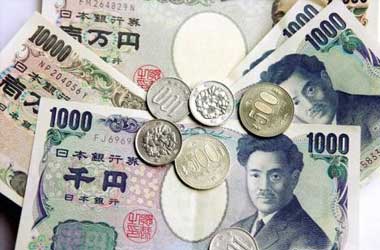 The yen eclipsed other top currencies Tuesday following the monetary policy meeting by the Bank of Japan (BoJ) and against the backdrop of rising demand for safe-haven assets, even though there is a room to appreciate again in the forthcoming weeks as per several analysts.
The yen eclipsed other top currencies Tuesday following the monetary policy meeting by the Bank of Japan (BoJ) and against the backdrop of rising demand for safe-haven assets, even though there is a room to appreciate again in the forthcoming weeks as per several analysts.
Other factors discussed below could be playing in the strengthening of the yen in addition to a mere demand for safe-haven assets such as the franc and the US dollar that have eclipsed riskier assets such as the Aussie and the New Zealand dollar, which are basically commodity currencies.
For several years, speculators have been placing bets against the yea and it was not different this year. However, in April, there seems to be hints of unwinding the positions. Last month, the USD/JPY has lost 1.1% of value, slashing the currency pair’s year-to-date gain to about 5%, even though a portion of analysts are anticipating the yen to gain ground further.
Greg Anderson, chief of Forex strategy at BMO Capital Markets, has pointed out that the USD/JPY pair’s decline this quarter has been systematic so far, but the FX Positioning Report indicates that a huge long-USDJPY position does remain on the IMM.
Anderson forecasts the likelihood of USD/JPY pair to decline to a 106 or further below if institutional fund manager positions – provided by the Commodity Futures Trading Commission – continue to get diluted in the weeks ahead.
In the meantime, technical analysts at RBC Capital Markets have stated that the 107.70 level is to be closely monitored, with a break below that level to lead another round of decline.
There is no clarity on whether the decline of the USD/JPY pair would affect the the Pound-to-Yen exchange rate, which had sternly stood above the 150 level even as the yen has inched shyly higher in May.
George Davis, chief technical strategist at RBC Capital Markets has pointed out that a daily candle close below 107.70 would spark a fresh round of selling, with the immediately support levels (Ichimoku cloud) being 106.78 and 106.22.
The yen’s exceptional performance last week has come against the backdrop of April’s Bank of Japan policy update in which the bank did not announce any changes while providing a mixed outlook in which inflation was forecast to decline while GDP growth anticipations were upwardly revised.
The economic growth outlook was upwardly revised in spite of a worsening covid-19 scenario in Japan which has forced the government to announce its third state of emergency.
Japan is apparently lagging behind developed economies with respect to coronavirus vaccinations, even though in the forthcoming weeks, investors could make huge speculative bets against the yen and changes in the worldwide bond market, which is crucial for the currency.
Imogen Bachra, a currency strategist at Natwest Markets, said that aggregate overseas sovereign bond holdings will probably be maintained at the maximum. A major share of the lifers plan to slash “holdings of hedged bonds (even though it will be primarily due to big UST redemptions in 2021), negating this with rises in unhedged overseas sovereign bonds.”
Closure of speculative positions against the yen could be an outcome of the likely dissatisfaction at the dearth of fund outflow in May as April marks the end of tax year in Japan, which is traditionally a huge buyer of overseas financial assets.
Therefore, it is widely believed that numerous traders may have anticipated the Japanese investors to look for an opportunity to purchase overseas bonds due to sharp rise in yields in recent times, and expected the yen to be negatively impacted as an outcome before placing bets against the currency.
Nevertheless, data provided by the Ministry of Finance has disclosed that Japanese investors were the main liquidators of foreign bonds in the first-quarter while big Japanese life insurers have posted minimum interest for foreign assets. The handful of exclusions is debt markets in Canada and Australia, as per Natwest Markets.




